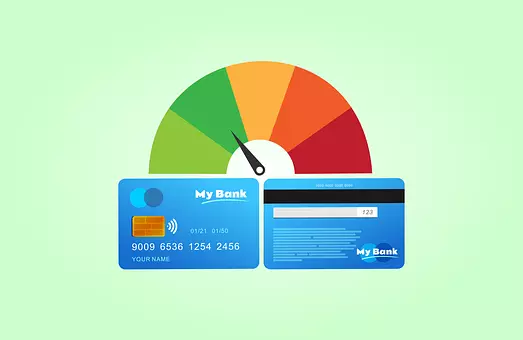Comments
- No comments found

When most people think about credit scores, they usually only think about whether or not that score is high enough to get them the loan they need.
And while a high credit score is important, it's far from the only thing contributing to a good credit rating. In this article, we'll take a closer look at what goes into your credit score and why it matters.

Your credit score is a three-digit number that reflects your overall creditworthiness. It's calculated based on your credit report information, including details about your payment history, current debt levels, and other financial commitments. Lenders use your credit score to help them decide whether or not to approve you for a loan and at what interest rate.
You can go to legalconsumeradvocate.com and check their services in the credit score field. Credit scores typically range from 300-850, with higher numbers indicating a better credit rating. While different credit bureaus may use slightly different scoring models, the most common one is the FICO score, developed by Fair Isaac Corporation.
Even if you have a low credit score, it doesn't mean you won't be approved for a loan - it just means you may have to pay more interest or put down a larger down payment. This website has a great resource on companies that can help fix your credit score. Conversely, even with a high credit score, there's no guarantee that you'll be approved for every loan you apply for.
There are a few different things that play a role in your credit score:
Your payment history: This includes whether or not you've made your payments on time and in full. It's one of the most important factors in your credit score, so it's important to always make your payments on time.
Your credit utilization ratio: This is the percentage of your available credit you use at any given time. Keeping this number low - ideally below 30% - is important to help improve your credit score.
The length of your credit history: A longer credit history is generally better for your credit score than a shorter one. If you have a long history of making timely payments, it will help boost your score.
Your credit mix: It refers to the types of credit accounts you have, such as revolving credit (like a credit card) and installment loans (like a car loan). Having a mix of both can help improve your credit score.
New credit: Opening too many new credit accounts in a short period can hurt your score. So if you're planning on applying for a loan, it's best to avoid opening any new lines of credit beforehand.
Your credit score is important because it gives lenders an idea of how likely you are to repay your debts. The higher your score, the more likely they'll approve you for a loan - and the better the terms of that loan are likely to be. A low credit score, on the other hand, could lead to a higher interest rate and smaller loan amount.

Your credit score can also affect your ability to get a lease on an apartment or a new job. And if you ever need to borrow money from a lender, having a good credit score will save you money in the long run by helping you qualify for lower interest rates.
Remember, your credit score is just one factor that lenders look at when considering you for a loan. Other factors, such as your income and employment history, also play a role in the decision-making process. So even if your credit score isn't perfect, you'll need to do a credit restoration to improve your chances of getting approved for a loan. However, there's still a good chance you'll be approved for a loan - it might not be at the best interest rate.
If you hope to improve your credit score, you can do a few things. First, ensure you always make your payments on time and in full. Second, keep your credit utilization ratio low by avoiding excessive borrowing. And finally, don't open any new lines of credit unnecessarily - only apply for new loans when you need them.
Credit scores may vary according to the country. For example, in the United States, three major credit reporting agencies - Equifax, Experian, and TransUnion - each use their scoring system. So if you have a score of 750 on one report, it might be equivalent to a score of 700 on another.
In Canada, there's only one credit reporting agency - Equifax - and its scores range from 300 to 900.
No matter what country you're in, the basics of credit scoring are generally the same: a higher score means you're a lower-risk borrower, while a lower score means you're a higher-risk borrower.
Your credit score is important because it affects your ability to borrow money and get favorable loan terms. So if you're planning on applying for a loan, check your credit score beforehand to know what to expect.
Leave your comments
Post comment as a guest